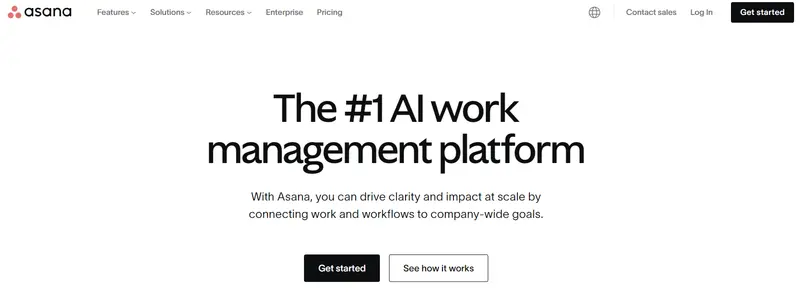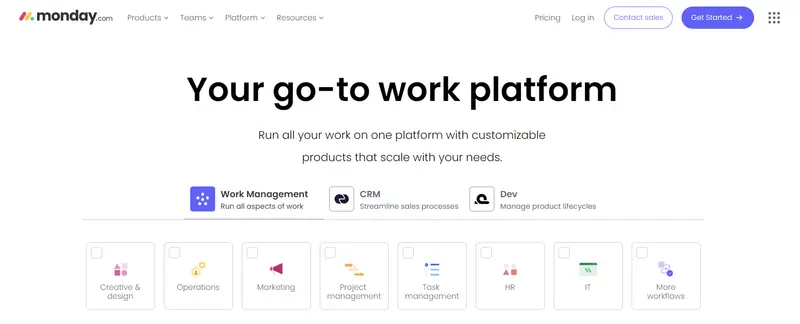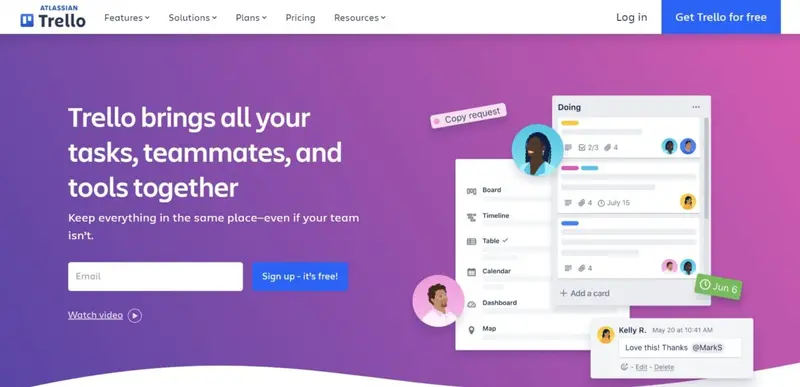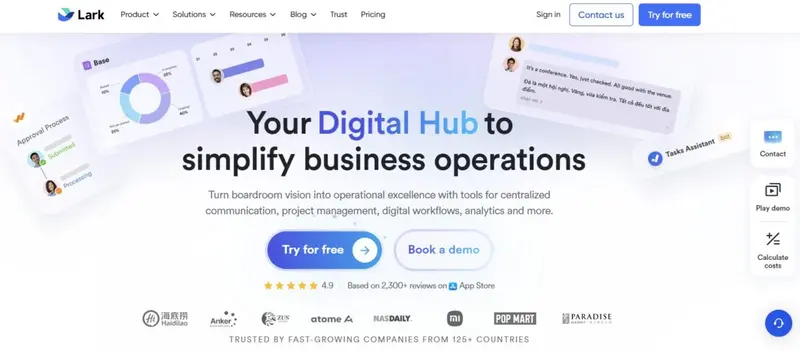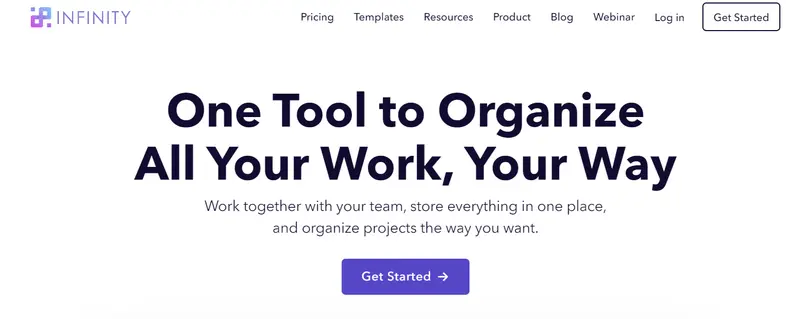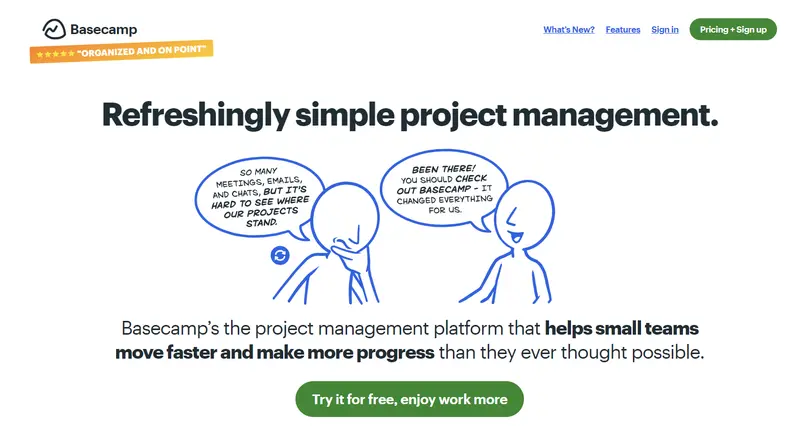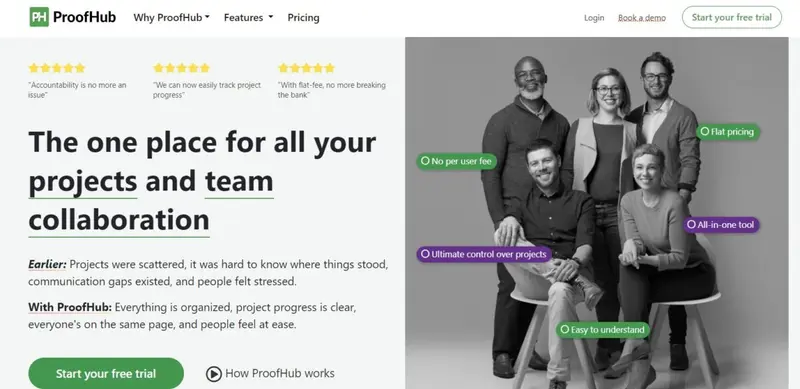Influencer Marketing Hub sets itself apart from conventional review platforms through the involvement of Digital Marketing experts such as Werner Geyser, Djanan Kasumovic, Camille Kennedy, Dave Eagle, and other notable industry figures. This expert team brings a profound understanding of the Digital Marketing landscape, assessing tools and platforms with an insider’s perspective on capabilities, experience, and industry acumen. Unlike user-generated review platforms, Influencer Marketing Hub’s evaluations are rooted in extensive firsthand experience and direct interactions with the tools and platforms in question. This ensures that the reviews are not only trustworthy but also deeply informed. High-caliber brands like Asana, Monday.com, and Trello undergo rigorous monthly evaluations, highlighting the platform’s commitment to identifying and showcasing top-tier solutions in Digital Marketing and beyond.
Influencer Marketing Hub has consistently been recognized by leading media outlets for our authoritative data, findings, and insights within the Digital Marketing landscape. Our platform is frequently cited as a trusted source of information, demonstrating the value and impact of our work in shaping industry standards and practices.
Influencer Marketing Hub employs an expert-driven methodology to evaluate Digital Marketing agencies, ensuring that our recommendations are both reliable and comprehensive. This approach is designed to help businesses and individuals find the best agencies to meet their specific Digital Marketing needs. Here’s how we assess the various agencies like Asana, Monday.com, and Trello:
Creative agencies work on many projects simultaneously, making advanced project management tools necessary. However, many agencies are still stuck with antiquated technology like spreadsheets.
Collaboration, workflow, and communication are much more streamlined with the latest project management software. So, as your creative agency anticipates new opportunities in 2025, let go of outdated tech that holds it back from achieving its biggest goals. Check out our top picks of project management tools for creative agencies.
Best for: Established or growing creative agencies looking to boost collaboration and workflow Pricing: $0 – $24+/month Asana is a project management tool that streamlines multiple tasks in marketing, operations, information technology (IT), product development, and company-wide management. Agencies can work in sync using a single-shared hub, which organizes projects and tasks in one place. The hub lists team activities according to their status, like “In-progress” and “Complete.” It also shows the department or person assigned to each task, so it’s easy to determine who’s accountable. Projects and tasks can be viewed in a calendar, timeline, Gantt chart, or Kanban board format. Team members can outline their tasks by breaking them down into bite-sized pieces and adding their collaborators. This makes it easier for key stakeholders to monitor workflow and make approvals. Furthermore, Asana lets agencies organize creative production tasks through a Creative Request form. The assigned team member can then update the status of their work on the platform and indicate its stage in the approval process. On the other hand, managers can track their teams’ productivity in real time through dynamic visual charts. Best for: Creative agencies of all sizes looking for an all-in-one project management tool Pricing: $0 – $19+/month Monday.com is an excellent tool for creative agencies because of its extensive features covering project management, sales & customer relationship management (CRM), and development tasks. Its project management platform generates workflow views in over 10 formats, including Gantt and Kanban. The dashboard provides real-time updates and lets agencies focus on specific projects or team tasks by displaying dynamic widgets. Leaders can set objectives to ensure that team members are heading in the same direction while staying aligned with the agency’s goals. Meanwhile, teams can send and receive creative requests, manage digital assets, and collaborate with key stakeholders in one place. Overall, Monday.com streamlines the entire creative process from ideation to post-delivery tasks. Creative strategy agencies can set goals and strategies, assign tasks, execute work, deliver on time, and measure impact on the platform. Best for: Smaller creative agencies that need straightforward tools for tracking projects and goals Pricing: $0 – $17.50/month Trello is a project management tool by team collaboration software Atlassian. Trello stands out from other creative agency tools because of its affordability and simple user interface. It uses boards, lists, and cards to organize tasks and determine each team member’s assignment. The boards organize tasks and provide an overview of a particular project. It contains lists that show the different stages of a task, from “to-do” to “completed,” and cards that hold crucial information about a task or project, including files, collaborators, labels, due dates, and notes. Team members can communicate within the cards by commenting. A more noteworthy feature of Trello is its proprietary tool for design teams. Creative agencies can use the design tools to manage requests, drafts, revisions, and cross-functional tasks. They can also conduct design sprints by exploring Trello’s design templates. This makes brainstorming concepts, testing ideas, and executing design plans easier. Trello’s dashboard gives agencies a bird’s eye view of projects and workflows, helping identify bottlenecks and other challenges. It also lets agencies visualize critical metrics to keep stakeholders informed about a project’s progress. Best for: Growing creative agencies looking to supercharge collaborations Pricing: $0 – $12+/month Lark is an enterprise collaboration platform used by growing creators and companies, including Nas Daily, NextBillion.ai, Pop Mart, and more. It unifies all the apps your creative agency needs in one platform. You can chat, manage documents, conduct meetings, monitor calendars, and perform other essential tasks without using separate software. One of Lark’s most outstanding features is “Magic Share.” It facilitates live document collaboration within virtual meetings. You can also create documents with your team to save time on feedback. Monitoring and brainstorming activities are streamlined by interactive blocks containing polls, flowcharts, objectives, results, or mind maps. Furthermore, creative teams can use content creation templates to set up social media calendars, manage image requests, review design drafts, create storyboards and videos, perform market research, and more. Best for: Small creative agencies looking for a workflow management system that can be tailored to their needs and project scope Pricing: $3.75 – $6/month Infinity is a work management platform that eliminates the clutter associated with project management, like dozens of folders and subfolders. Used by global corporations like Slack, Ford, and Prezi, Infinity provides a customizable workflow for your organization. You can use filtering, sorting, and grouping tools to organize your tasks and timelines. Infinity enables maximum flexibility by offering over 12 custom attributes for your workflow, including text, labels, due dates, and attachments. You can also automate processes using preset automation templates, reducing the need for manual reminders and repetitive tasks. If you need to produce ideas for a project, you can use Infinity’s AI tool to get recommendations. You can also collect feedback from your team and clients through custom feedback forms. It’s an excellent way to measure the platform’s impact and your agency’s performance. Best for: Small, “underdog” creative agencies competing against established agencies Pricing: $15 – $299/month Basecamp is a project management software and online collaboration tool. It’s designed for small teams taking on multiple projects with tight deadlines. Basecamp provides a single page where creative agencies can manage every aspect of their projects. The page contains tiles dividing tasks and assets so you know where to put messages, upload files, list tasks, conduct check-ins, and more. You can also track a project’s progress, particularly in the “Card Table” tile, where the status of tasks is shown. The Message Board, on the other hand, unifies all your inboxes, so you no longer need to open various email clients to keep track of all your messages. Basecamp also offers a dedicated chat room for every project, allowing teams to organize their requests and updates accordingly. Overall, Basecamp eliminates the need for separate apps to chat, share files, assign tasks, and set schedules. It’s designed for agencies, marketers, designers, client service firms, and more, making it the perfect software for optimizing your creative agency’s workflow. Best for: Creative agencies with remote teams Pricing: $45 – $89/month ProofHub is a project management and team collaboration software. It helps companies manage their simple and complex projects in one place. The software’s Project and Tasks tool contains forms, custom fields, reports, workflows, and dependencies. It also lets you view task lists, recurring tasks, subtasks, timelines, assignees, labels, and more. The tool’s forms allow clients to send requests and feedback and collect valuable data. The workflows are customizable according to your team’s processes. You can create flowcharts to let your team and clients know what to expect during the project’s development. Moreover, you can add dependencies to the workflow to specify who’s in charge of every task. ProofHub’s reporting features cover project status, task completion, resource utilization, time utilization, and time logged. All updates are represented by charts and graphs, so tracking movement, timeliness, and productivity is easy. 1. Asana
Key Benefits:
2. Monday.com
Key Benefits:
3. Trello
Key Benefits:
4. Lark
Key Benefits:
5. Infinity
Key Benefits:
6. Basecamp
Key Benefits:
7. ProofHub
Key Benefits:
How Project Management Tools Help Creative Agencies Succeed
Project management tools help agencies stay on top of their projects and daily workload. They keep tasks organized, allowing teams to know which ones to prioritize.
Here are some real-life success stories of companies in the creative industry that used project management tools.
Naisu: Lark Case Study
Naisu is a Jakarta-based creative agency specializing in design services. The agency initially relied on off-the-shelf third-party team collaboration tools, but as its team grew and began taking on more complex tasks, Naisu’s solutions proved inefficient.
Naisu found Lark, which helped the agency streamline vital collaboration tasks, improve efficiency, and save time. Its chat, intuitive cloud documents, and unlimited video call features enabled the agency to work without interruptions. Naisu also benefitted from Lark’s built-in universal translation function, which translated text messages and documents into Thai, Chinese, English, and other languages. As a result, Naisu experienced increased productivity, a more organized workspace, and decreased turnaround times for creative briefs and pitches.
Explore Media: ProofHub Case Study
Explore Media is a commercial production company specializing in brand films and television advertising. In its review of ProofHub, the company stated that it tried various project management software but couldn’t find what it needed. When it finally found ProofHub, Explore Media stayed on the platform for one main reason: flexibility.
ProofHub combined Basecamp's visual experience with Trello's comprehensive but straightforward details. Explore Media also noted ProofHub’s responsive team, which helped implement user suggestions.
Spaghetti Agency: Basecamp Case Study
Spaghetti Agency is a Warwick-based digital marketing agency specializing in content, social media, and PPC. In a testimonial posted on Basecamp’s website, Spaghetti Agency stated that the project management tool helped them share information more efficiently, resulting in fewer emails. Moreover, the agency's associates could effortlessly provide updates on the progress of their projects, leaving out the manual task of writing them down on paper.
These success stories prove that project management software is essential for creative agencies. Automating even the most minor tasks can make a significant difference in overall efficiency, leading to timely deliveries. As a result, creative agencies can gain the complete trust of their clients and cement their reputation in the industry as a reliable agency.
Essential Features of Project Management Tools for Creative Agencies
With numerous tools to choose from, you should select a project management software offering features that help you move projects forward without a hitch. Below is a list and overview of a project management tool’s most vital features.
Tracking Features
Allocating tasks and tracking their progress become cumbersome once they're ongoing. Hence, choosing a tool that offers task management, productivity, and time-tracking features is important. You should be able to identify the stage of every project and your team’s daily accomplishments.
Gantt charts, Kanban boards, calendars, or timelines help you visualize accomplishments, status updates, and milestones better. It provides a clearer picture of your project's progress than spreadsheet cells. As such, you can easily track deliverables and specify estimated delivery dates.
Communication and Collaboration Tools
Communication and collaboration may seem easy enough with email around. Still, they would be much more streamlined when done within the same platform where you manage projects, tasks, and employees.
Top project management tools facilitate centralized business communication, which outdated spreadsheets lack. With a project management platform, you can tag your team members in a project to give them tasks or send updates. You can also manage files and other resources so various departments can collaborate seamlessly. Furthermore, a centralized dashboard lets your agency get an overview of all projects and ensure everything's within budget.
Budget Tracking
Most creative projects or campaigns exceed the proposed budget, which becomes a significant issue when you can’t report it to the client on time. A project management tool helps prevent this scenario.
Automated and continuous budget tracking features ensure that your client’s short- and long-term goals align with their budgets. It also ensures that your services won’t incur additional, unnecessary costs. If a budget adjustment is needed, you can inform your client immediately to give them some elbow room.
Task Management Features
Project management tools for creative agencies enable transparency within the entire organization by providing intuitive task management features. It lets you view each team member’s workload and check what’s already been done. You can also keep track of everything that needs approval and revisions. As a result, you can conduct fewer meetings and spend more time completing tasks and reporting to clients.
Alternatively, an agency without a task management tool can only allocate tasks through spreadsheets, email, or instant messaging, none of which have tracking functionality. In this case, lengthy meetings with your team for daily check-ins may be required before updating your clients.
Real-Time Reporting Capabilities
Most tools for creative agencies provide real-time updates on every task so you can report the latest developments to your clients. In addition, you can constantly check on due dates, timelines, budget reports, digital assets, and overall project progress. These developments can be visualized through dynamic charts, tables, calendars, boards, or widgets so every aspect of the project is quickly identified.
Integrations
Project management tools for creative agencies can be integrated with enterprise tools like Slack, Microsoft Teams, and Zoom. They can also be connected to design tools like Canva or Figma and CRM tools like Zoho.
Integrations maximize automation, increasing your agency’s efficiency. You no longer have to switch between apps or programs to look for updates. You can view everything and carry out essential tasks on a single platform.
Conclusion
The global market for project management software reached approximately $4.8 billion this year. Forecasts show it could reach $6.3 billion by 2028, indicating that more businesses are turning to the latest technology to streamline project and task management.
Don’t stay behind by sticking to outdated spreadsheets and systems. Boost your team’s efficiency and get more clients in 2025 by investing in a top project management tool.
Frequently Asked Questions
What is a project management tool?
A project management tool helps agencies plan, organize, and allocate resources for a project. It lets creative agencies manage multiple projects efficiently and streamline collaborations. Project management tools possess functionalities for essential departments in an agency, such as operations, marketing, design, and more. It also helps track all employees’ tasks and accomplishments.
What are the benefits of project management tools for creative agencies?
Project management tools have benefited creative agencies in many ways, including:
- Enhanced efficiency
- Streamlined collaboration
- Unified business functions
- Progress visualization through charts, boards, etc.
- Easy tracking
- Integration with other essential tools
- Real-time updates
- Increased flexibility
- Time efficiency
What are the top project management tools for creative agencies?
Numerous project management tools are available, but our top 5 picks are:
- Asana
- Monday.com
- Trello
- Lark
- Infinity
How much do project management tools cost?
Most project management tools charge $0 to $20+ per user/month. You can save more by choosing a tool with a flat pricing model, like ProofHub. Its most advanced package costs only $89/month.

